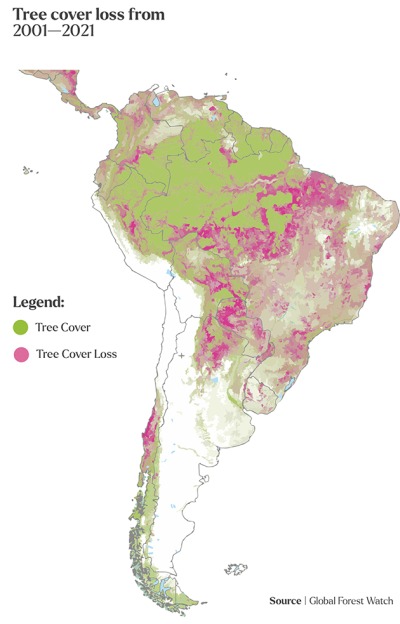New Hope for the Brazilian Amazon

The Brazilian Amazon is under siege by commercial interests that have been destroying it for profit through land-grabbing for illegal mining, logging and the expansion of agriculture and cattle farming.
The rate of deforestation in the Amazon jumped a shocking 59.5% during the four years of former president Jair Bolsonaro’s term from 2019 to the end of 2022. Since the election of President Luiz Inácio “Lula” da Silva, there has been a clear commitment by Brazil’s top leaders to protect the Amazon and Indigenous Peoples of Brazil. Indigenous Peoples have been safeguarding the Amazon’s biodiversity for millenia. Despite hundreds of years under a system that profited from dispossession of Indigenous lands, waters, and culture, perhaps the tides have truly turned in Brazil. These actions bring new hope for desperately needed conservation projects in the country that holds 60% of the Amazon.
Rainforest Trust has always held the rights, cultures and customs of Indigenous Peoples and local communities in the highest regard, and will continue to operate with their full engagement and Free Prior and Informed Consent in all projects we support in Brazil.

Our Ambitious Plan to Protect the Brazilian Amazon
Over the next four years, Rainforest Trust proposes to protect or be in the process of protecting 20 to 25 million acres of the Brazilian Amazon through an investment of $50 million. Our staff have been holding high-level meetings to develop new projects at the state and federal levels in Brazil. Our primary focus is to support the best local organizations around the world and help them develop the best possible projects. We will especially emphasize partnerships with Indigenous peoples and local communities that result in at least 50% of projects securing land tenure protections. Our work in Brazil will help us reach the goals of our $500 million commitment to 30×30.
Our ambitious goals in Brazil are essential to our three pronged strategy to move the needle on conservation in three of the largest remaining tropical landscapes on Earth that still have significant portions of intact rainforest: the Amazon Basin, the Congo Basin of Africa and Papua in Southeast Asia.
In January, the first project that was a result of our efforts to build partnerships in the Brazilian Amazon was launched. “Save the Brazilian Amazon” with our partner Instituto Internacional de Educação do Brasil (IEB) will safeguard over 2.2 million acres of highly biodiverse habitat through formal designations that recognize land tenure and guaranteed management rights. The project areas are concentrated along rivers—on the front lines in the fight against deforestation—where many rare birds and countless other species find their homes.
Primary forest accounts for 83% of Brazil’s total tree cover, which is why Brazil is a top conservation priority for Rainforest Trust and for global conservation.
There are approximately 138 million acres of undesignated lands in the Brazilian Amazon. As we work towards safeguarding at least 20 to 25 million acres over the next four years, various protection mechanisms will be employed depending on the particularities of the project: legalization of Indigenous and local community land tenure and management rights; creation of new or expansion of national or state protected areas; and outright land purchases to be held by in-country NGOs, community organizations and the like.
Donate Now to Save the Brazilian Amazon
Brazil is a Global Carbon Treasury
The Amazon stores 111 billion metric tons of carbon, equivalent to more than five times the combined annual emissions of the top 10 CO2 emitting nations. It is a refuge for an estimated one-third of all Earth’s terrestrial species. Its loss is unthinkable. That is why we are working harder and faster, with your support, to prevent the real danger of the Amazon transitioning from rainforest to savanna, thereby endangering all life on Earth.

Sign up to receive the latest updates
"*" indicates required fields









